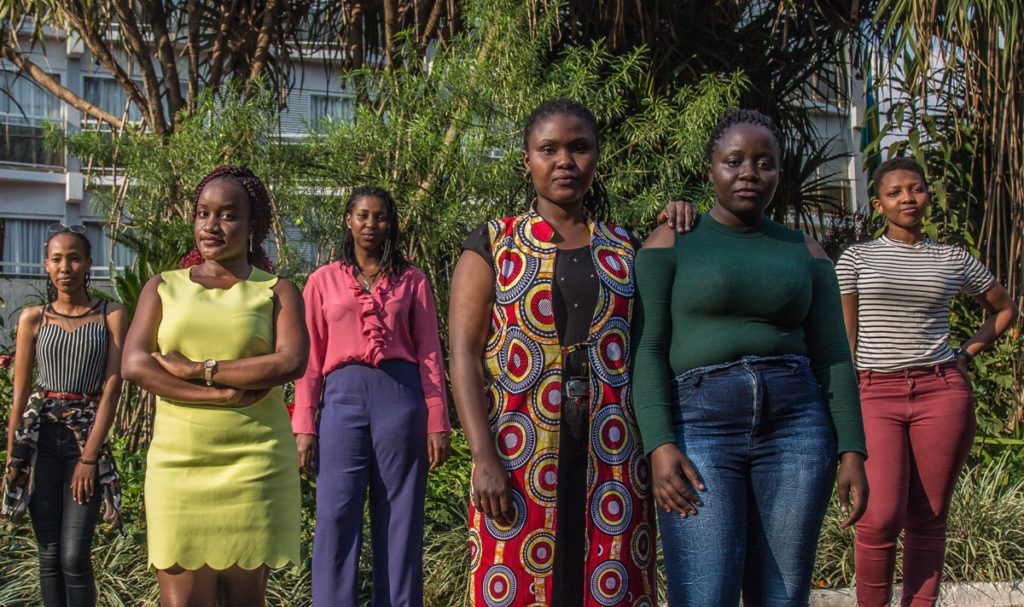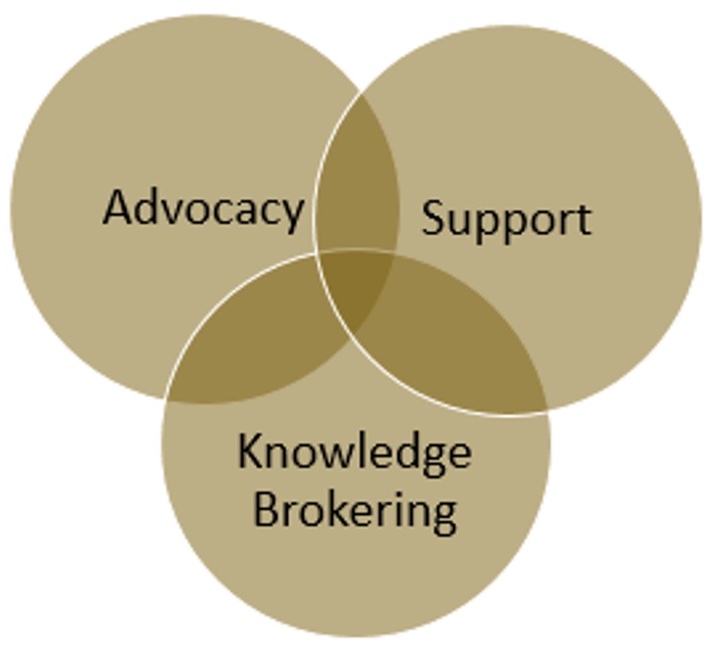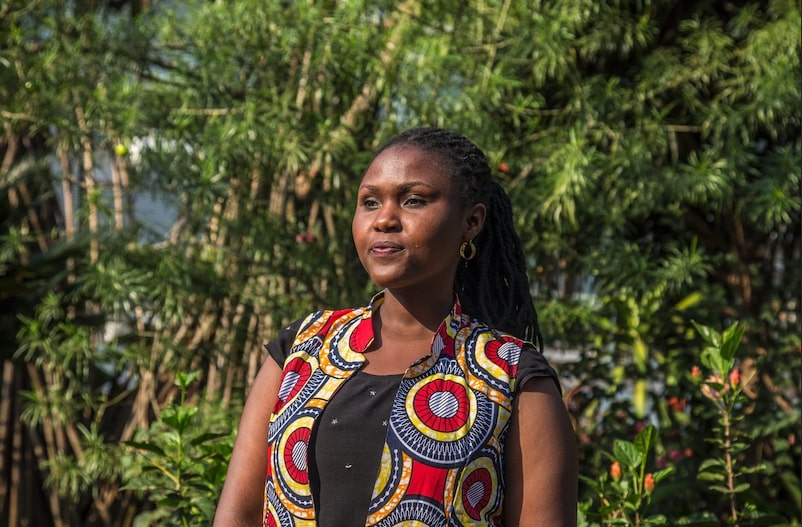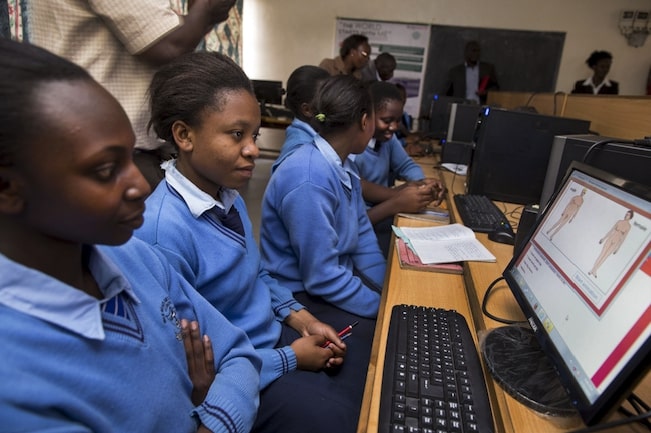East Africa’s FP Knowledge Management Champions

Knowledge Management Champions play an important role in change management for family planning and reproductive health (FP/RH) programs. Also known as KM Champions, Knowledge Activists, or Knowledge Coordinators, they are not knowledge managers but part-time volunteer knowledge change agents—facilitating knowledge acquisitions from knowledge innovators and enabling the sharing and effective utilization of such knowledge.
The Role of the KM Champions

The Knowledge Management ASK Framework
Knowledge Management Champions, commonly referred to as KM Champions, are an important pillar for projects, programs, organizations, countries, or regions that seek to integrate and institutionalize knowledge management in their work.
In East Africa, KM Champions contribute to three main areas in delivering family planning and reproductive health programs, namely:
- Advocacy—disseminating the knowledge management messages and influencing action.
- Support—acting as local representatives for knowledge management activities in their countries.
- Knowledge brokering—linking partners to information, knowledge, and family planning and reproductive health resources and advocating for their utilization.
These three areas make up the ASK Framework of knowledge management.
Building Capacity
In East Africa, Knowledge SUCCESS (KS) has for the last six months engaged 13 KM Champions. Employing various activities, including capacity building, KS equipped them with skills in sourcing, sharing, and effectively using critical knowledge for better FP/RH outcomes.
Members of this cohort also benefited from online engagement with the East African family planning Community of Practice and the Anglophone Africa Learning Circles. These resources provided further opportunities to explore and practice the techniques of knowledge management.
A Community of Practice is a platform for practitioners in the region to generate, manage, and utilize knowledge and information pathways within the family planning and reproductive health discipline.
Activities of the KM Champions
KM Champions in Rwanda engaged the country’s FP2030 Technical Working Group, which was also an opportunity to introduce the work of KS in the region to FP2030 country focal points.

In Tanzania, KM champions engaged 10 youth-led service organizations, health workers, and government leaders, who are key actors in tackling family planning and reproductive health matters. The subjects discussed during the stakeholders’ engagement meetings included:
- Linking communities to information and services.
- Use of digital media to share family planning.
- Reproductive health information among young people and use of music, dance, and drama to reach communities with information on FP/RH.
The organizations that were engaged included African Youth and Adolescents Network, Population Service International, Pathfinder International, Young and Alive Initiative, and Mtwara Clinical Officers Training College Sexual Health Club.
Innocent Grant, a KM Champion from Tanzania, noted that the Sexual Health Club in Mtwara designed a Tuongee UZAZI WA Mpango Facebook page, or “Let’s talk about Contraceptives.” It provides real-time responses to young people’s contraception questions. Connecting young people to information and knowledge about FP/RH has been a big achievement of the club.
“We, the KM Champions in Tanzania, are proud to have engaged youth-led organizations on knowledge management practices; available family planning and reproductive health resources; and how Knowledge SUCCESS platforms could help them source, share, and effectively utilize such knowledge for improved family planning and reproductive health outcomes,” said Fatma Mohamed, a KM Champion from Tanzania.
KM Champions from across the East Africa region coordinated Twitter chats on International Youth Day and World Contraception Day. Engaging KM Champions in key advocacy calendar events not only helps them gain visibility but also promotes their work.
Impact Registered
KM Champions acknowledge that the knowledge and skills they acquired on storytelling and knowledge management practices have helped them to understand and apply better, more relevant remedies to the reproductive health challenges in their community. The KM Champions are leading discussions in the FP/RH Community of Practice. For example, some are part of the National Technical Working Groups in their respective countries, supporting advocacy and knowledge brokering.
Technical Working Groups are comprised of policymakers, civil society representatives and program managers, technical advisors, and convenors who advise governments on family planning policies and can contextualize guidelines from a global perspective.

Erick Niyongira, Rwandan KM Champion.
Erick Niyongira, a KM Champion from Rwanda, said, “KM Champions are important actors in family planning and reproductive health programming. We help bridge implementation gaps by ensuring that stakeholders find, share, and utilize the knowledge they need, which transforms the lives of women, men, couples, and families.” Niyongira noted that through effective collaboration with KM champions, organizations can achieve much more in advancing the provision of services and reducing the unmet need for family planning.
KM Champions play an important role in increasing the visibility of Knowledge SUCCESS’ work in the East Africa region. They have helped disseminate knowledge management messages from Knowledge SUCCESS to target audiences and have continuously advocated for knowledge sharing and positive learning behaviors. They link local partners to communities and assist project managers in understanding country contexts.
Challenges Encountered
Niyongira notes that family planning and reproductive health programs are making a big impact on communities, evidenced by the increasing uptake of modern contraceptives. While the Champions rightfully contribute to this success, they face several challenges.
KM Champions are volunteers; due to competing work priorities, it is sometimes difficult to seamlessly implement their activities to achieve stated objectives in a timely manner.
Limited opportunities for meaningful youth engagement in decision-making is another challenge. Niyongira explains, “The most active KM Champions are the youth, but the youth have limited access to decision and policymaking platforms, which limits their abilities to effectively engage critical stakeholders to make impact.”
Getting government leaders’ attention was difficult, especially in explaining the importance of knowledge management in delivering effective FP/RH programs. Grant, the KM champion from Tanzania explained that youths face tremendous challenges in navigating stringent government protocols, which cause a loss of crucial information along the way and disillusionment among the youth.
An additional challenge is limited resources for online engagement. With the movement restrictions imposed because of the COVID-19 pandemic, KM Champions in Uganda encountered challenges interacting with stakeholders virtually, especially in remote areas where internet connectivity is difficult.

A Way Forward
Continuous engagement with and support of KM Champions will help strengthen knowledge management practices and let policymakers, program managers, and technical advisors understand that knowledge management is essential for sustainable FP/RH programming in East Africa.
KM Champions recommended that formal introduction to their respective Ministries of Health is made to ease their access to such platforms and that FP/RH Technical Working Groups should be utilized to foster such engagements and collaboration.
The Champions embraced working collaboratively, learning, and sharing knowledge and country experiences. They called for more interactive ways of building strong networks including convening physical meetings when COVID-19 travel restrictions are relaxed.




